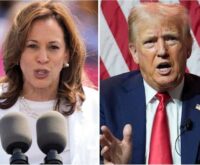By GRANT SCHULTE
Associated Press
LINCOLN, Neb. (AP) _ After suffering a setback in the Legislature, supporters of a higher minimum wage in Nebraska are wasting little time in gathering signatures to place the issue on the November ballot.
To put the question to voters at the general election, supporters must submit about 83,000 verified signatures by July 3 _ they hope to gather far more to ensure the measure will qualify.
Organizers have met their initial targets in the petition drive, and paid canvassers have walked the streets of Lincoln and Omaha every day since the campaign was launched last month, said state Sen. Jeremy Nordquist of Omaha, a spokesman for the group Nebraskans for Better Wages
If successful, the petition drive would let Nebraska voters decide whether to gradually increase the state’s minimum wage from $7.25 an hour to $9 by January 2016. It also would set up a campaign battle with business groups that oppose the measure.
Nebraska’s minimum wage _ which matches the federal minimum wage _ was last increased in 2009. Twenty-one states have minimum wages above the federal minimum, including bordering state Colorado and Missouri.
“We have a multi-faceted approach, and I think we’ll be successful,” Nordquist said. An increase for minimum-wage earners “would really hit them and their communities in the pocketbook, in a positive way,” he said.
The group is backed by some big donors.
Nebraskans for Better Wages received $250,000 last month from Omaha philanthropist Richard Holland, a prominent Democratic contributor. It also reported major contributions from union groups: $25,000 from the Nebraska State Education Association, $10,000 from the Nebraska State AFL-CIO and $5,000 each from the Nebraska State Council of Electrical Workers and the Nebraska State Utility Workers.
Organizers spent nearly $250,000 to hire a Washington-based consultant, FieldWorks, which specializes in ballot initiatives. They also have pledged to pay $30,000 to state Sen. Danielle Conrad of Lincoln for campaign management consulting, and $5,000 to contract with Nebraska Appleseed, an advocacy group for working families and the poor, according to the Nebraska Accountability and Disclosure Commission.
“What we’ve seen across Nebraska and many other states is that hard work just isn’t paying what it used to,” said James Goddard, a staff attorney with Nebraska Appleseed. “Raising the minimum wage would allow more families to make ends meet.”
Nordquist and Conrad began pushing for a ballot initiative after a similar measure died in the Legislature this year. Supporters fell five votes short of the 25 they needed to advance the bill through a first-round vote.
Canvassers will travel statewide over the next few weeks to gather signatures from smaller population counties, as required by state law. Campaign leaders have also mailed hundreds of petition packets to circulators who completed an online course on how to properly gather signatures, Nordquist said.
Several polls have indicated a majority of Nebraskans support raising the minimum wage, but the proposal is opposed by business groups that contend it would cut into the profits of small companies that are most vulnerable to financial pressures.
A higher wage could also make it more difficult for businesses to hire young, inexperienced workers who want on-the-job training, said Bob Hallstrom, a lobbyist for the Nebraska Federation of Independent Business.
“Anytime you look at an increase in the minimum wage, particularly on the heels of a recession, it’s a concern for small businesses that are struggling,” Hallstrom said. “The minimum wage, pure and simple, adds cost to their bottom line.”
To qualify for the ballot, Nebraska requires petition circulators to gather signatures from 7 percent of registered voters. That total must include at least 5 percent of registered voters from each of 38 counties _ two-fifths of Nebraska’s 93 counties.
The requirement is designed to ensure petition gatherers can’t focus solely on higher population, urban areas.











